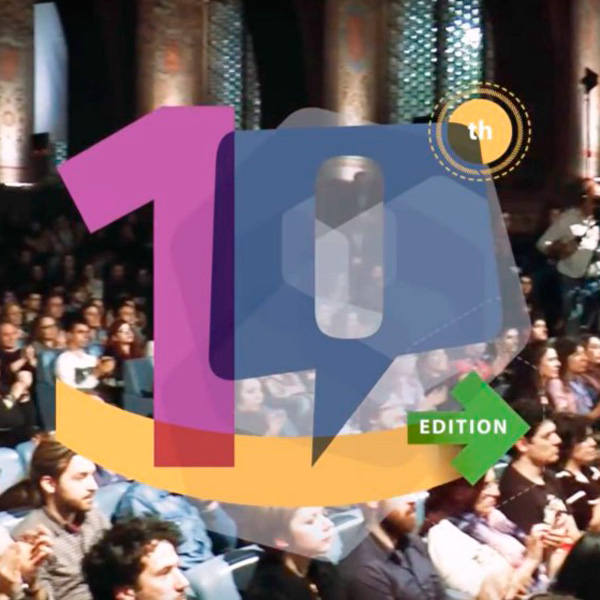#ijf16talks | Tow Center for Digital Journalism | In conversation with | Anything to say? | Panel discussions | Workshops | Presentations | Films and documentaries | Book presentations
Where is journalism heading? A business model is undoubtedly in crisis. We are going through what might be called a permanent revolution. And the issues in play are many: fact-checking, data journalism, explanatory journalism, the role of platforms, paywalls vs crowdfunding, the era of video and of mobile, robot journalism, virtual reality, the involvement of readers and the civic role of journalism, the crisis of the homepage, the search for a new objectivity, mobile first journalism, understanding audiences beyond the use of metrics, social networks vs mainstream media. And yet, reliving the Spotlight case at the cinema, we remain convinced that journalism still has the power to change things for the better.
The festival programme will offer attendees and speakers from all over the world sessions not only on journalism but also on areas of broader public interest such as the migrant crisis, war, terrorism, the rebirth of nationalisms, privacy and mass surveillance, freedom of expression and the fight against censorship, the role of NGOs in war coverage, and many more. For the festival, journalism is principally participation and conversation. And we wish to celebrate this aspect in particular as we reach our tenth anniversary. The desire to exchange ideas, the need to tell stories and the fundamental importance of sharing experience are key features of the festival.
As every year the festival is pleased to welcome a team of volunteers from all over the world, 194 in total from 19 different countries:: Brazil, Bulgaria, Cameroon, Egypt, France, Germany, Greece, Hungary, India, Iraq, Italy, Kenya, Lithuania, Russia, Slovenia, Spain, Sri Lanka, UK and USA.
We invite you to check out the full festival programme on the website, but to provide a taster we have prepared the following brief overview. By clicking on +info ► you can link to full details of each session, and then add it if you wish to your personal festival day-by-day agenda on your computer or smartphone.
#ijf16talks
Four talks of 16 minutes each (the year is 2016), four insights on a world of journalism in flux and the battle for democracy and freedom of information.

Mark Little (moderated by Anna Masera, public editor La Stampa)
Twitter turns ten: what’s next for the platform that redefined news? +info ►
Mark Little is vice-president of media for Europe and Africa of Twitter. He was appointed in November 2015.
…
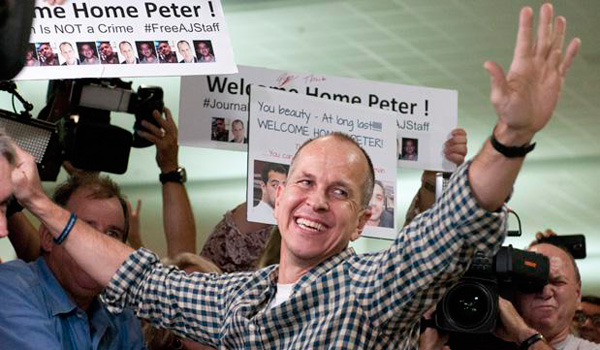
Peter Greste (moderated by Marina Petrillo, Reported.ly)
Media freedom and the war on terror: the amazing shrinking space +info ►
Peter Greste is an award-winning Australian journalist and correspondent who has worked for Reuters, CNN, the BBC, and most recently Al Jazeera English. He has reported principally from the Middle East, Latin America and Africa. In December 2013, Egyptian security agents arrested Greste and two other Al Jazeera English journalists, accusing them of news reporting that was “damaging to national security”. In June 2014, he was found guilty and sentenced to seven years in jail. In February 2015, a month after a retrial of the three journalists was ordered, Greste was deported and his colleagues were released on bail. He had spent more than 400 days in a Cairo jail.
…
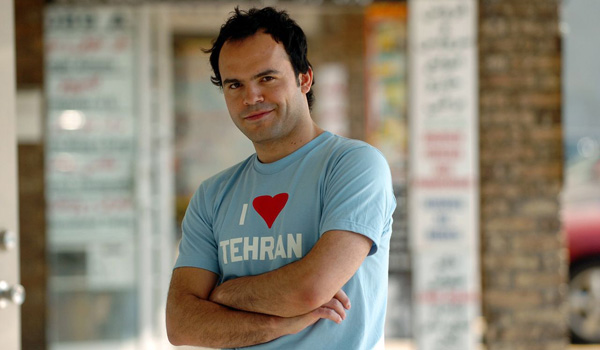
Hossein Derakhshan (moderated by Carola Frediani, La Stampa)
Journalism in the post-web era: what we have lost, what we have gained and what it is becoming +info ►
Hossein Derakhshan is a Canadian-Iranian author and journalist. He was the pioneer of blogging in Iran which earned him the title of ‘blogfather’ there. He spent six years in prison in Iran over his blog posts and other web activities. He is the author of The Web We Have to Save (Matter, July 2015), which was published in Liberation, Die Zeit, Corriere della Serra, El Pais, Folha de Sao Paulo and The Guardian. He now writes about Iran and technology for various media outlets, including Hamshahri Javan (in Tehran) and shares his thoughts at @h0d3r on Twitter and Medium. He is also the creator of Link-age, an art project to promote open and diverse internet.
…
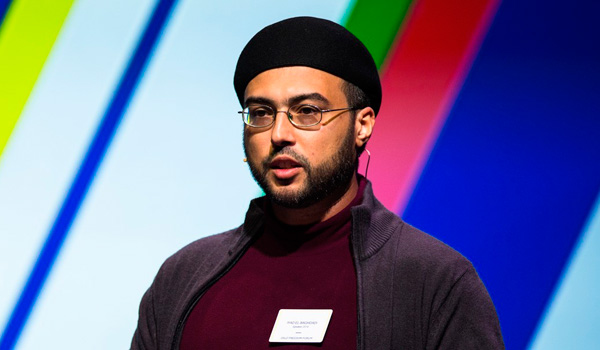
Iyad El-Baghdadi (moderated by Barbara Serra, Al Jazeera)
The terrible triangle: tyrants, terrorists and native reform in the Arab world +info ►
Iyad El-Baghdadi is a writer, human rights activist, and career entrepreneur. In 2011, with the Arab Spring uprisings, Iyad began tweeting about the Egyptian revolution, translating statements, chants, and videos from Arabic to English, which allowed the international audience to understand what was happening. In February 2011 he translated Asmaa Mahfouz’s now-famous pre-revolution call for Egyptians to go down and protest. This video collected over a million views, and Iyad’s translation became the standard in literature documenting the revolution. After March 2011 he became well-known for his The Arab Tyrant’s Manual, a collection of satirical tweets poking fun at tyrants in trouble. The list became so popular that within a few weeks it had already been translated into 13 languages. The hashtag #ArabTyrantManual continues to be active and relevant today.
Iyad is a stateless Palestinian born and raised in the United Arab Emirates. In April 2014 he was summoned by the Immigration department in his town of Ajman and informed of an expulsion order against him. No reasons were given for his expulsion and there was no process for appeal. He was then deported to Malaysia whilst his wife was seven months pregnant. His baby son was born while he was stranded in Malaysia.
Tow Center for Digital Journalism – Columbia Journalism School
Actively involved in the festival programme for the first time, the Tow Center has organised three sessions:

Journalism after Snowden +info ►
with Emily Bell (director Tow Center for Digital Journalism), Ewen MacAskill (The Guardian), Stefania Maurizi (L’Espresso), Marcel Rosenbach (Der Spiegel).
…

Can a robot do my job? +info ►
with Emily Bell (director Tow Center for Digital Journalism), Meredith Broussard (Arthur L. Carter Journalism Institute), Nicholas Diakopoulos (University of Maryland), Andreas Graefe (Tow Center for Digital Journalism), Justin Myers (automation editor Associated Press).
…

Journalism and Silicon Valley +info ►
with Emily Bell (director Tow Center for Digital Journalism), Trushar Barot (mobile editor BBC World Service), Madhav Chinnappa (director strategic relations Google), Mathew Ingram (Fortune Magazine), Craig Silverman (editor Buzzfeed Canada).
In conversation with

Raqqa is Being Slaughtered Silently: the courage of reporting on life in Syria under ISIS +info ►
In northern Syria, near the border with Turkey, stands the town of Raqqa, considered the headquarters and capital of the Islamic State. The lack of journalists on the ground, both national and international, kidnappings, crucifixions, beheadings and repression by ISIS had created a curtain of silence around Raqqa, which was impenetrable for the foreign press. Until a group of young journalists and Syrian activists launched a revolutionary information campaign Raqqa is Being Slaughtered Silently (RBSS), with the goal to publish and distribute online content in Arabic and English to document the massacre that had been taking place in their city. The members of RBSS live with the constant danger of being discovered. Three of them have already been murdered by ISIS. Two of the founders of RBSS, Abdalaziz Alhamza and Hussam Eesa, will be in conversation with Francesca Caferri.
…
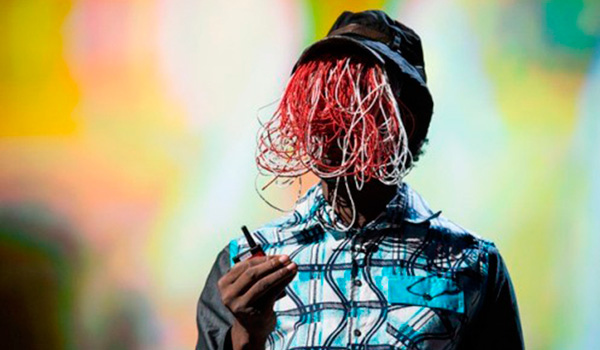
Anas Aremeyaw Anas, undercover reporter +info ►
In conversation with one of the leading investigative journalists in Africa, focusing on issues of human rights and corruption. Anas has become well known for using his anonymity as a tool in his undercover journalistic work. He maintains his anonymity by shielding his face when conducting TV interviews and making public appearances.
Anything To Say?
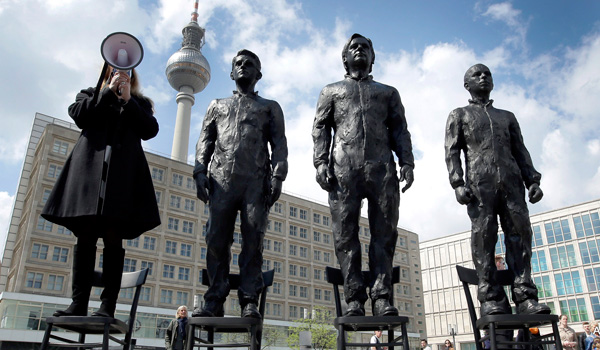
Davide Dormino’s public artwork Anything To Say? is a bronze sculpture portraying three life-sized figures of Edward Snowden, Julian Assange and Chelsea Manning, who had the courage to say no to the intrusion of global surveillance and to lies that lead to war. The fourth chair is empty and can be interacted with by members of the public. +info ►
The statue is on a European tour: Berlin, Ostrale-Dresden, Geneva, Paris, Strasbourg and, for the first time in Italy, it will be in Perugia (in Piazza IV Novembre) during the festival. An associated panel discussion entitled From WikiLeaks to Snowden: protecting high-value sources in the age of mass surveillance will take place with speakers Sarah Harrison, Davide Dormino, John Goetz and Stefania Maurizi.
Panel discussions
Among the 90 panel discussions in the festival programme we highlight the following:
The death of journalistic objectivity +info ►
with Yasmin Alibhai-Browne (The Independent), Charlie Beckett (director POLIS), Dan Gillmor (Walter Cronkite J-School), Mathew Ingram (Fortune Magazine) and Anna Masera (public editor La Stampa)
What constructive journalism is and why we need it +info ►
with Charlie Beckett (director POLIS), Cathrine Gyldensted (University of Windesheim), Craig Silverman (editor Buzzfeed Canada) and Karel Smouter (deputy editor-in-chief De Correspondent)
Today’s tool and tech of engagement +info ►
with Andrew DeVigal (Agora Journalism Center University of Oregon), Andrew Haeg (founder and CEO GroundSource), Marc Lavallee (editor interactive news The New York Times), Jacopo Ottaviani (freelance journalist) and Amanda Zamora (senior engagement editor ProPublica)
Yemen: the silent war +info ►
with Laura Silvia Battaglia (freelance journalist), Malachy Browne (Europe anchor Reported.ly), Iona Craig (freelance journalist), Abdurahman Hussain (film-maker and producer) and Sara Ishaq (film director)
Why funding good journalism matters +info ►
with Joyce Barnathan (president ICFJ), Maaike Goslinga (international editor De Correspondent), Celeste LeCompte (director business development ProPublica), Maria Ramirez (co-founder El Español) and Vivian Schiller (executive committee chair Vocativ)
Doing the impossible for the ungrateful: building technology for newsrooms +info ►
with Mathew Ingram (Fortune Magazine), Mark Little (vice president of media Europe&Africa Twitter), Claire McHugh (CEO Axonista), James Neufeld (founder and CEO SAM) and Paul Quigley (co-founder and CEO NewsWhip)
Communicating complex economic news +info ►
with Noah Barkin (special correspondent Reuters), Lucy Marcus (CEO Marcus Venture Consulting), Michael Steen (head of media relations European Central Bank) and Matina Stevis (The Wall Street Journal)
News distribution: how has it changed +info ►
with Cecile Dehesdin (editor Buzzfeed France), Adriano Farano (co-founder and CEO Watchup), Luca Forlin (head of strategic partnerships Google), Garrett Goodman (director business development Wochit) and Renée Kaplan (head of audience engagement The Financial Times)
About time: digital women bosses take charge +info ►
with Alexandra Foederl-Schmid (editor-in-chief Der Standard), Liz Heron (executive editor The Huffington Post), Mitra Kalita (managing editor The Los Angeles Times), Raju Narisetti (senior vice president News Corp) and Madhulika Sikka (executive editor Mic)
Workshops
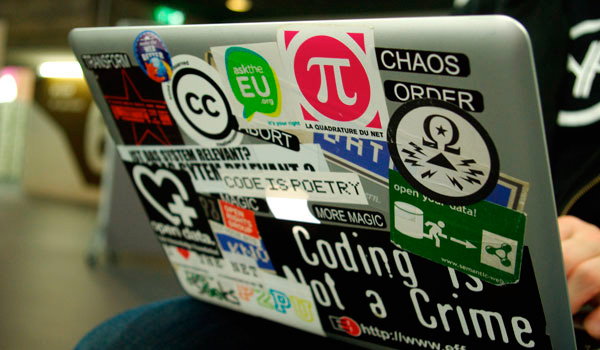
The festival provides a wide range of workshops (75 in total, all free entry) to permit attendees to hone their skills in particular areas. The workshops are divided into four groups: Hackers’ Corner (13 sessions specifically directed to those interested in hacking, how to protect yourself against being hacked, etc), Law&Order (19 sessions on the legal aspects of the journalistic profession), Data Journalism (17 sessions with a specific focus on the practical aspects of doing data journalism) and a general category of Workshops (26 sessions on a wide variety of topics).
Among the general category of workshops we highlight the following:
Media action and human rights +info ►
with Lina Srivastava (co-founder Regarding Humanity)
I, journalist: from gonzo journalism to immersive journalism +info ►
with Amedeo Ricucci (RAI 1 News) and Mandy Rose (director Digital Cultures Research Centre)
Sunrise film walk +info ►
join Robb Montgomery (multimedia consultant) for a dawn photo walk though stunning Perugia
Google advanced Search, Images and Trends +info ►
with Elisabetta Tola (media training specialist Google News Lab)
Youtube, Hangout and other multimedia tools +info ►
with Elisabetta Tola (media training specialist Google News Lab)
Maps, Streetview and Photosphere +info ►
with Elisabetta Tola (media training specialist Google News Lab)
Google AMP +info ►
with Luca Forlin (head of strategic partnerships Google)
Twitter and Periscope masterclass for journalists +info ►
with Livia Iacolare (manager media partnerships Twitter Italy)
And five workshops organised in association with the First Draft News Coalition:
The responsibility of reporting graphic imagery: ideas for protecting yourself and your audience +info ►
with Andy Carvin (editor Reported.ly) and Claire Wardle (Tow Center for Digital Journalism)
Effective tools and techniques for verifying social content +info ►
with Craig Silverman (editor Buzzfeed Canada) and Josh Stearns (director Local News Lab GR Dodge Foundation)
Developing your social discovery skills for more effective newsgathering +info ►
with Fergus Bell (founder Dig Deeper Media) and Mandy Jenkins (news director Storyful)
Undertaking open source investigations +info ►
with Malachy Browne (Europe anchor Reported.ly) and An Xiao Mina (Meedan)
The complexities of copyright and eyewitness media +info ►
with Adam Rendle (senior associate Taylor Wessing) and Jenni Sargent (managing director First Draft News)
Presentations
Among the 26 presentations we highlight the following:
Google Digital News Initiative: promoting innovation and high quality in digital journalism +info ►
presented by the Google team of Ludovic Blecher, Madhav Chinnappa, Matt Cooke and Isabelle Sonnenfeld
Will investigative journalism save the planet (and journalism too)? +info ►
investigative journalism by Greenpeace, with Maeve McClenaghan and Andrea Purgatori
The Coral Project: building better communities +info ►
a collaborative project between the Mozilla Foundation, The New York Times and The Washington Post. With Greg Barber (The Washington Post) and Marc Lavallée (The New York Times)
Drone journalism +info ►
with Matt Waite (founder of the Drone Journalism Lab)
The numbers that rule our lives +info ►
with Stijn Debrouwere (analytics expert)
Start-up thinking for journalists and newsrooms +info ►
with Ezra Eeman (director VRT Start-Up)
Robot: tools, conditions and challenges of automated journalism +info ►
with Frederik Fischer (editor Piq.de) and Stephan Wiechert (Hamburg Media School)
Films and documentaries

#ThisIsACoup: how the EU destroyed the Tsipras government +info ►
by Theopi Skarlatos and Paul Mason
Theopi Skarlatos and Paul Mason on the making of #ThisIsACoup, a four-part 2015 documentary series which examines life under austerity in Greece, the country’s confrontation with the EU, and the emotional turmoil accompanying political change. It is directed by Theopi Skarlatos and produced by Paul Mason for Field of Vision, the visual journalism film unit of The Intercept.
Paul Mason says of the documentary: “Whatever the beauty of the shots, however brilliantly constructed the narrative is, the mere fact of seeing behind the scenes in this government is such a head fuck. Because no other media have got it. Everybody who is Greek that’s seen rushes or excerpts from this, they tend to clutch at their throat and go, “Wow, I’ve never seen this. I’ve never seen the prime minister’s office. Who knew the chief of staff has a bust of Lenin on his desk?” It’s going to do their heads in, but after it does their heads in, I want them to say, “Well, what happened? What did we learn from that?”
The screening of #ThisIsACoup (total duration 64 minutes) will follow the talk with Theopi and Paul.
…

Amazon Originals Film Night +info ►
Italian preview screening of Transparent (second season) and The Man in the High Castle, two TV series produced by Amazon Studios. The event will be introduced by Roy Price, Senior Vice President Amazon Studios.
…
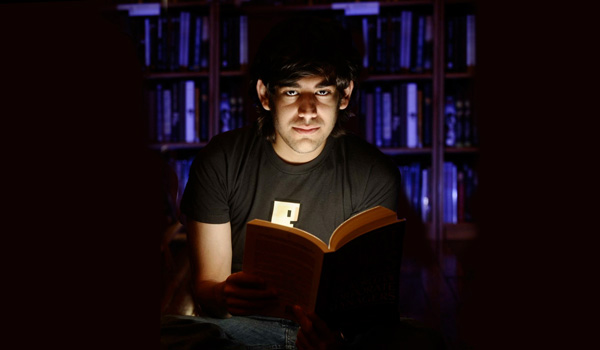
The Internet’s Own Boy: the story of Aaron Swartz +info ►
by Brian Knappenberger.
Showing of the documentary film The Internet’s Own Boy: The Story of Aaron Swartz (2014), directed by Brian Knappenberger. Aaron Swartz was a programming prodigy, Reddit co-founder and free information hacktivist who took his own life in January 2013 at the age of 26. The documentary is a dynamic and tragic portrait of the life of a champion of open access who grew up to lead the internet community into a new age of data sharing and free speech
…

Greenpeace. How to change the world +info ►
Showing of the award-winning documentary film How to Change the World on the origins and history of Greenpeace.
In 1971 a small group of activists set sail from Vancouver, Canada in an old fishing boat. Their mission was to stop President Nixon’s atomic test bomb in Amchitka, Alaska. Chronicling this untold story at the birth of the modern environmental movement and with access to dramatic archive footage unseen for over 40 years, the film centres on eco-hero Robert Hunter and his part in the creation of the global organization we now know as Greenpeace. Alongside a group of like-minded and idealistic young friends in the 1970s, Hunter would be instrumental in altering the way we look at the world and our place within it. These early pioneers captured their daring and sometimes jaw-dropping actions on film and from this director Jerry Rothwell has made a thrilling, sometimes terrifying film. A prizewinner at the Sundance Film Festival it is one of the must-see documentaries of 2015.
…
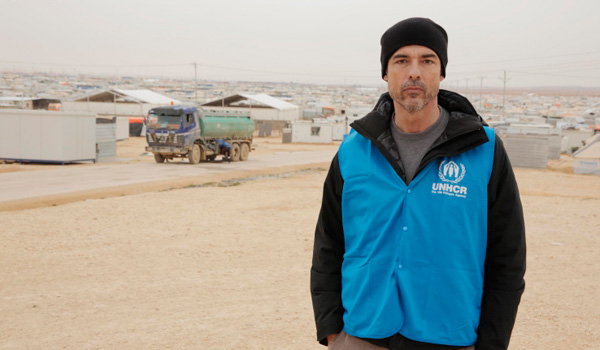
Torn +info ►
by Alessandro Gassman
Screening of the documentary Torn, produced by the UNHCR and directed by Alessandro Gassmann.
“How do you keep alive your own ideas if you are deprived of your house, your country… of everything?” (Nour Shamma, artist, playwright, Syrian refugee). After five years of war, the Syrian crisis is the greatest tragedy of our era. Half of the population has been forced to flee, more than 7 million people are displaced within their own country, while there are 4 million refugees in neighboring countries. Among them Mohammad, Nour, Alaa, Rasha and many other artists who, despite the fact that a return to a peaceful Syria appears distant, show us that life does not stop while waiting to return. The protagonists of Torn, who met in the Zaatari refugee camp in Jordan and Beirut, refuse to be seen as victims and offer a new perspective on the resilience of an entire people. The film is a glimpse into the lives of those who, torn from their own land, cling to their roots, aware of the importance of preserving their identity and that of an entire nation through artistic expression.

To be followed by the session Art and journalism in time of war with Alessandro Gassman, Carlotta Sami, Alaa Arsheed and Patrick Kingsley.
Book presentations
Among the book presentations we highlight the following:

The Red Web: the struggle between Russia’s digital dictators and the new online revolutionaries +info ►
In conversation with Andrei Soldatov and Irina Borogan, authors of The Red Web.
Silicon Valley: i signori del silicio +info ►
In conversation with Evgeny Morozov on the subject(s) of his latest book, published in 2016 in Italy.
The Idealist: Aaron Swartz and the Rise of Free Culture on the Internet +info ►
In conversation with Justin Peters, author of The Idealist. A reflection on the fascinating and tragic story of Aaron Swartz, an iconic figure in digital culture.


